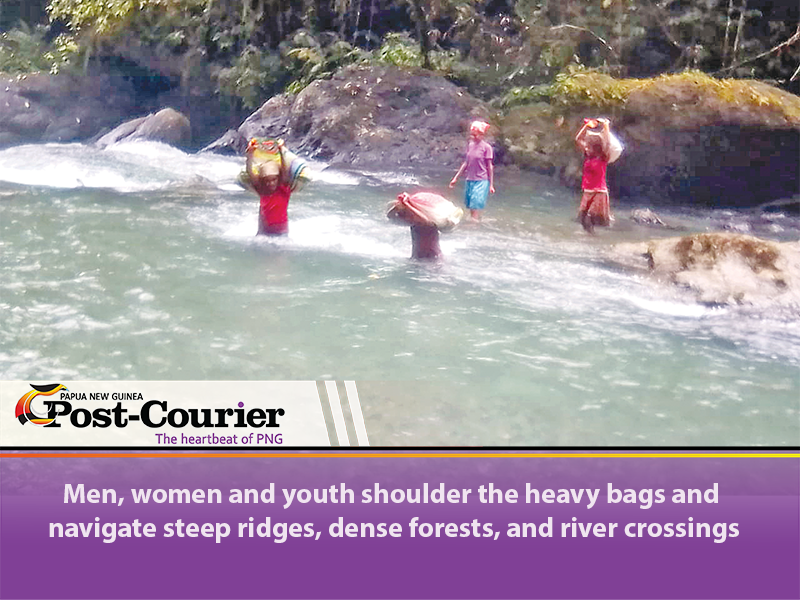WHILE coffee-growing provinces such as Eastern Highlands and Western Highlands continue to receive consistent backing from government programs and the Coffee Industry Corporation (CIC), remote farmers in Milne Bay’s Rabaraba area remain neglected, despite their efforts to grow and export high-quality coffee.
In a remarkable show of determination, members of the Kaibwea Coffee Cooperative in Rabaraba are carrying more than 20 bags of green coffee beans, each weighing between 15 and 20 kilograms, by foot across 46 kilometres of rugged mountain terrain to reach the coastal village of Sirisiri for shipment to Alotau.
The trek begins in Giro, where the beans are pulped, dried, and packed under the supervision of cooperative leader Tabira Bego.
From there, men, women, and youth from surrounding villages shoulder the heavy bags and navigate steep ridges, dense forests, and river crossings.
“This is the only way we can get our coffee to market,” said Mr Bego. “We have the manpower, the land, and the quality beans, but we lack the institutional support that other provinces receive from CIC and government programs like DSIP and PSIP.”
Despite the region’s abundant resources and quality Arabica coffee, the three local-level governments (LLGs) in Rabaraba, Daga, Weraura, and Makamaka, remain underdeveloped.
Farmers say a lack of basic infrastructure such as roads, storage facilities, and transportation continues to limit their potential.
“This region has potential, but year after year, we don’t see any government investment in agriculture,” Mrs Bego said.
At Sirisiri, the beans undergo final sun-drying, standardisation, and quality checks before being loaded onto boats for delivery to Alotau.
Local farmer Frank Tabira urged authorities to recognise Rabaraba’s growing role in the coffee sector.
“We know the value of this commodity. It’s time the government and CIC recognise it too,” he said.
Farmers are now appealing to the Milne Bay Provincial Government and relevant agricultural bodies to provide logistical support, allocate funding, and officially recognise Rabaraba as a viable coffee-producing district, one capable of making meaningful contributions to the national economy.
